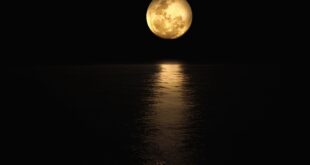From the Roaring Twenties to Beatnik Revolution:
Top 10 Literary Movements that Shaped the World of Words
1. The Lost Generation: An Existential Awakening
Emerging from the ashes of World War I,
the Lost Generation writers forged a path
filled with disillusionment and introspection.
Authors like Ernest Hemingway and F. Scott
Fitzgerald painted vivid portraits of a society
reflecting the anxieties and disconnection of
the post-war era.
2. The Harlem Renaissance: Celebrating Black Artistry
During the 1920s and 1930s, African-American
artists, writers, and musicians flocked to New
York City’s Harlem neighborhood. The Harlem
Renaissance became a cultural powerhouse,
giving birth to names like Langston Hughes,
Zora Neale Hurston, and Duke Ellington.
3. Surrealism: Unveiling the Unconscious Mind
Bursting onto the scene in the 1920s, surrealism
sought to challenge reality by tapping into the
power of the unconscious. Inspired by Sigmund
Freud’s theories, influential surrealists like
Salvador Dalí and André Breton explored the
depths of the human psyche, creating art and
literature unlike anything seen before.
4. Modernism: Breaking Boundaries with Experimentalism
Taking root in the early 20th century, modernism
revolutionized literature, art, and culture by
eroding traditional norms. T.S. Eliot, Virginia
Woolf, and James Joyce pushed the boundaries
of storytelling through experimentation, innovative
narrative techniques, and fragmented perspectives.
5. Beat Generation: A Rebellion of Spontaneity and Nonconformity
Spearheaded by writers like Jack Kerouac, Allen
Ginsberg, and William S. Burroughs, the Beat
Generation emerged in the 1950s as an expression
of anti-materialism, spontaneity, and resistance
against societal norms. Their work captured the
restlessness and disenchantment of post-World War
II America, challenging traditional literary forms
and tackling controversial themes.
6. Romanticism: Embracing Passion and Nature
Romanticism, originating in the late 18th century,
emphasized the individual’s emotions and connectedness
with nature. Poetic giants such as William Wordsworth,
Lord Byron, and Samuel Taylor Coleridge delved into
the transcendent, stirring the hearts of readers with
their evocative and introspective works.
7. Transcendentalism: Searching for Divinity Within
Arising in the 1830s, transcendentalism rejected
societal conformity, advocating for self-reliance,
instinct, and the inherent goodness of humanity.
Authors like Ralph Waldo Emerson and Henry David
Thoreau explored the significance of the individual’s
relationship with the universe and encouraged spiritual
discovery beyond organized religion.
8. Postcolonial Literature: Voices from the Margin
Postcolonial literature emerged in the 20th century
as writers from formerly colonized regions gained
prominence. By giving voice to the experiences of
the colonized, authors like Chinua Achebe, Salman
Rushdie, and Arundhati Roy debunked cultural stereotypes
and explored the complexities of postcolonial identity
and the traumatic history of colonization.
9. Magical Realism: Blurring Reality and Fantasy
Coined in the late 20th century, magical realism blended
the ordinary with the extraordinary, introducing elements
of fantasy into ordinary settings with effortless grace.
Gabriel García Márquez, Isabel Allende, and Haruki Murakami,
among others, wove tales where enchantment coexisted
harmoniously within everyday life.
10. Existentialism: Questioning the Meaning of Life
Arising from philosophical roots, existentialism delved
into the purpose and significance of human existence.
Jean-Paul Sartre, Albert Camus, and Franz Kafka captured
the existential angst and explored the dilemmas faced
by individuals in an absurd and chaotic world,
ultimately offering glimpses of hope amid the chaos.
 Mind Uncharted Explore. Discover. Learn.
Mind Uncharted Explore. Discover. Learn.


